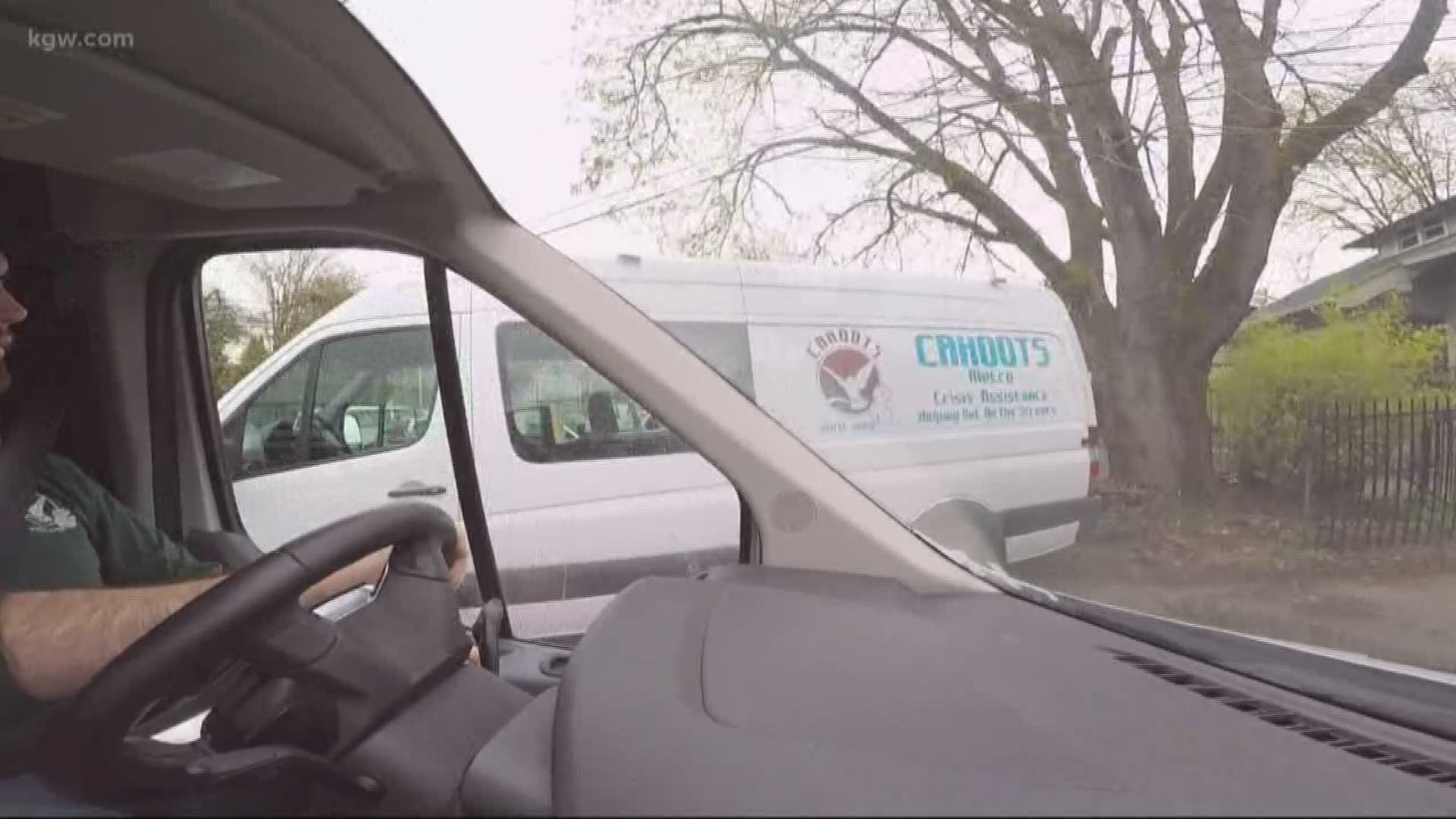PORTLAND, Ore. — The Portland City Council voted to accept an implementation plan for Portland Street Response Pilot Program. The program will change how the city responds to someone in a mental health crisis. It is modeled after a similar program that already exists in Eugene called CAHOOTS.
“I believe in the Portland Street Response program. I believe in re-envisioning how we care for people in crisis,” Mayor Ted Wheeler said. “We hope this pilot will find new and effective ways to help people experiencing homelessness get the care they need, and relieve our first-responders to care for the other emergencies happening around the city every single day.”
The Portland Street Response Pilot Program would start in January in the Lents Neighborhood in Southeast Portland.
Robert Schultz, the public safety chair of the Lents Neighborhood Association, was part of a group of volunteers over the summer that repainted the Lents neighborhood footbridge above Interstate 205. Oliver P. Lent Elementary sits at the end of the bridge and neighbors had had enough of the graffiti and homeless campers kids had to pass to get there. He said the bridge is now a sign of a community fighting to make things better.
“I mean it really shows who we are as a community and it’s different than a shooting that happened the other night, it’s different than all the negatives that continue to be reported on,” Schultz said.
Like the bridge, things have improved in nearby Lents Park as well. Neighbors said they have noticed less homeless campers lately.
“This park, specifically coming with the three dogs, has been super cleaned up and there hasn't been as much trash around and people taking naps and sleeping overnight in the park, as well as just random cars and RVs parked around, so that's been really nice,” said Lents resident Megan Freed as she played with her three dogs in the park.
However, neighbors say there is still a long way to go when it comes to tackling the issue of homelessness in Lents.
“We have a huge population of homeless out here and they've been pushed out here and they tell you, if you talk to homeless people, they say, Gresham doesn't tolerate, they push us in. Clackamas doesn't tolerate it, they push us up. Downtown doesn't tolerate it, they push us out. And in the end they settle in Lents and Southeast in general,” Schultz explained.
Neighbors hope the pilot program will be the answer.
“I think it's pretty cool,” said Lents resident Josh Craig. “This would be a great area because it's already on the up as far as I know. A lot of people say it's got a bit of a reputation and so I think this is a great place to start, especially since I live here."
Modeled after a similar program in Eugene, a two-person team made up of a medical professional and a crisis worker would respond to calls in a van equipped with medical supplies, food, and water. They would be used to respond to lower level calls that do not require police. The idea is that they could help people in a mental health crisis, and help reduce the trauma associated with being houseless.
“If you’re gonna do a homeless outreach program and you want it to have a chance to do real impact, Lents is perfect,” Schultz explained.
Funding for the program was already approved for the 2019-2020 budget. The pilot program is expected to cost $500,000. The Portland City Council is discussing it Thursday afternoon.
The Portland Police Association released a statement about the program that reads in part, “Part of the Street Response project is built on a false premise and perception that Portland Police Officers are ill-suited to address mental health and homelessness issues in a constructive and safe manner. Nothing could be further from the truth. PPB officers routinely handle all sorts of calls for service with mental health and/or homelessness components, ranging from simple calls where officers help connect people with resources to complex and dangerous calls where people are armed and posing a threat to themselves or others. PPB officers routinely resolve these calls for service safely and effectively.”
The statement goes on to say, “Time will tell whether this is a worthwhile, long-term investment. But understand that implementing the Street Response team will not directly address the broader need for comprehensive, wrap-around services for the homeless with treatment, housing, and jobs.”

